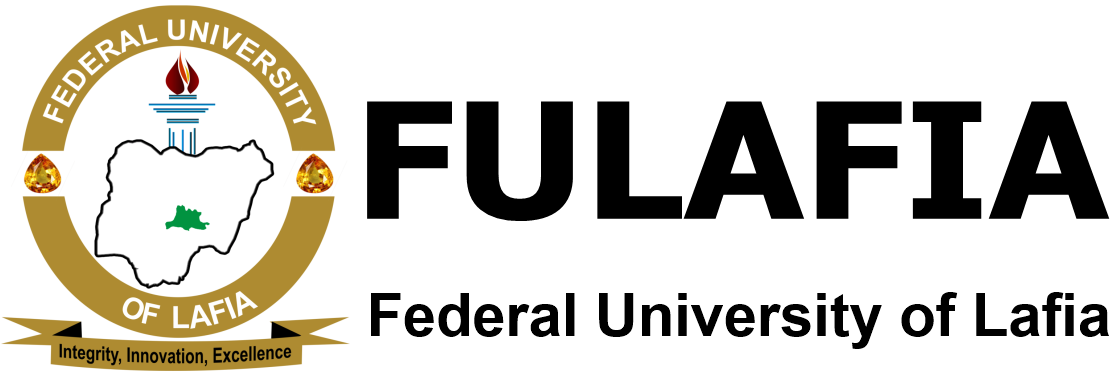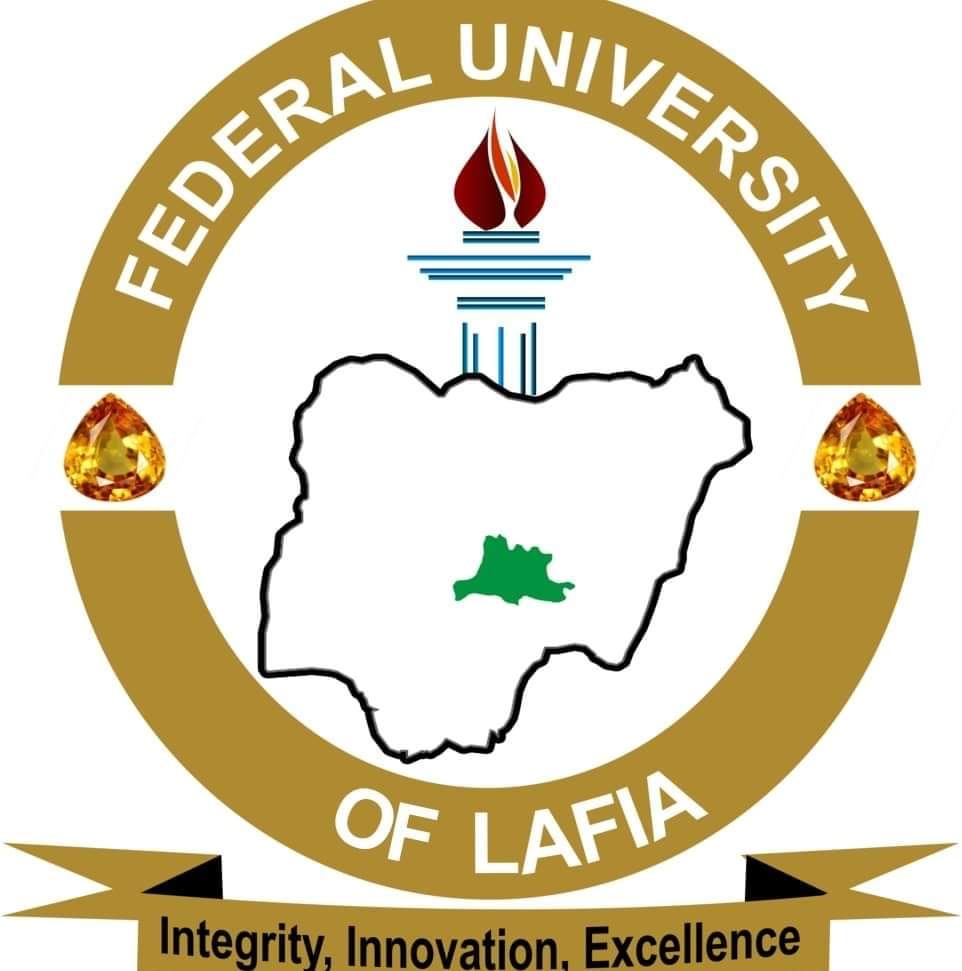HOD's profile
Thomas Anomoaphe ALEMOH, Ph.D, is a seasoned scholar, researcher and teacher of Mass Communication having obtained B.A [Hons] (Abraka), M.A (Maiduguri) and Ph.D (Uyo) in the discipline. As Associate Professor of Mass Communication, Dr Alemoh has had an unbroken university teaching, research and administrative experience spanning about two decades during which he has been a Head of Department at Kwararafa University, Wukari; Taraba State University, Jalingo and Federal Univervisty of Lafia, Nasarawa State, among other numerous administrative positions. He has also served in a good number of University Committees, both statutory and ad-hoc within the period.
Dr Alemoh has equally been an External Examiner and Reviewer to other Universities and reputable journals. He is a member of African Council for Communication Education (ACCE); Member, Association of Media and Communication Researchers of Nigeria (AMCRON) and International Research and Development Institute (IRDI). He has contributed articles to local and national newspapers/news magazines in Nigeria. Dr Alemoh has taught courses at both undergraduate/postgraduate levels across the various sequences of Mass Communication with special interest in print journalism, media theories and development communication and has graduated students at the Master and PhD levels. His research interest extends to media studies where he focuses on the relationship between the media and society. Dr Alemoh has over 40 publications in local and international journals and books to his credit and has attended a good number of conferences. He is married with children.
News Update
Stakeholders/media bodies
The Department of Mass Communication has a mutually beneficial relationship with some media organisations especially those within Nasarawa State. The Department has a working relationship with NTA, NBS, local newspapers, Equity Television, Nasarawa State Printing Press, among others. This relationship has enriched the quality of the Department’s work or output of production like hands-on training for production of departmental magazine and newspaper. The Department also partners with media and other cognate professional bodies such as ACCE, ACSPM, AMCRON, NIPR, ARCON, as well as Nasarawa State Ministry of Information and Culture.
Sports Engagement
The Department is sports-active in participating in the Dean’s Cup, an inter-Faculty competition in different sports activities and other tournaments in the University. The Department has each of a male and female football team, Basket Ball Team, Volley Ball Team and a contingent of sprinters who have won laurels at varied sports meet within the University.
Departmental Social Activities
The Department has a couple of social activities that promote inclusiveness and cohesion among staff and students. Such extra-curricular engagements range from Orientation, Press Week, and Media Clinic to Staff-Student Forum on a regular basis. The Orientation ceremony is usually organized for freshers (newly admitted students in 100 and 200 [DE] levels) in the Department. This is a way of welcoming the new arrivals to the Department and engrafting them into the Mass Communication family epitomized by communal love and care for everyone in the Department. Orientation is also organized for 200 and 300 levels students when preparing for their Media Attachment in different organizations.
Press Week is set aside each year to sensitize the University community and the wider society on the contribution of journalism and allied professions to national development. A public lecture is delivered within the week by a distinguished personality in the media circle or elsewhere as the Department pleases in collaboration with the University authorities.
Media Clinic is a forum of staff and students held weekly to review the state of things in the media industry locally, nationally and internationally. Students are encouraged to bring up topical issues for discussion among themselves under the guidance of academic staff. The essence is to make students attune to societal dynamics in the media world and how such issues bear on media training and practice.
Staff-student forum is usually organized at the end of each semester to get the feelings of both staff and students on the events that transpired during the semester in the Department. In this case, both academic and administrative staff of the Department are involved. It is an internal quality assurance control mechanism adopted by the Department to self-regulate its conduct.
Staff-Student Relationship
The Department exhibits a student friendly disposition. To exemplify this relationship, students are carefully guided to form and operate an association known as Mass Communication Students Association (MACOSA) in the Department. This is an umbrella body that protects students’ interest. It has a leadership hierarchy that is monitored by staff advisers while election into executive positions in the association holds every academic year.
Departmental Publications
The Department is considering publishing a bi-annual journal of Mass Communication and cognate disciplines. There is no doubt that the publication would add value to the intellectual dispositions of academic staff both in the Department and the entire University while reaching out to the wider invisible college of scholars globally.
Also, there would be training newspaper and magazine for students of the Department. These would be handled majorly by the students under the guidance of lecturers as academic advisers. The essence of doing this is to give the students the needed opportunity to ‘cut their teeth’ in journalism practice while on campus.
The Department has a student handbook in place which is given to new intakes at the point of registration in each academic session. The handbook details what is expected of the student undergoing the course of training and other useful information about the Faculty where the student belongs and the University community. The handbook is a compendium of the curriculum of the programme of study.
Mentoring Programme
The Department has an effective mentor-mentee programme through which younger lecturers (Graduate Assistant-Lecturer1) are paired with their senior colleagues (Senior Lecturer-Professor). The purpose is for the Department to groom the up-and-coming academics to be fully grounded in the rudiments of teaching, research, and community service in a university system so as to be able, in turn, to mentor others subsequently in a value chain arrangement.
Conference & Workshop
Awards
In December, 2023, the Head of Department, Dr Thomas A. Alemoh, was recognised by the Student body of the Faculty of Social Sciences, FOSSA, FULAFIA, as the Most Active Head of Department in the Faculty. The award, which was presented in a beautifully designed plaque, was well received and greatly appreciated by the awardee and the Department.
Further, in 2023, Mr Emmanuel Paul Idakwo was recognised as a member of CODESRIA following his successful participation in the organization’s international conference of that year in Nairobi.
Also, in December, 2023, Miss Patience Noah, a student of the Department got the ASUU Award in support of indigent but academically sound students. The monetary value of the award was One Hundred Thousand Naira (N100, 000) only.
Admission Requirements
Five O’L subjects are required at credit level in line with the University admissions policy as follows: English language, Literature-in-English, Mathematics, Government/Economics, Commerce, Geography, CRS/ IRS. In addition, candidates must have obtained the cut-off mark in UTME as specified by the University. There is provision for candidates to gain admission through Direct Entry when they have appreciable qualifications like Diploma in relevant field of study, at least with a lower credit grade.


